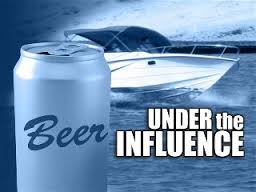Holiday Flotilla & NC Boating While Impaired
 The Wrightsville Beach 32nd annual North Carolina Holiday Flotilla is upon us! Many Wilmingtonians look forward to this water-based event every Thanksgiving weekend, as family and friends come together to eat, drink, and celebrate the holiday together. Whether you have a boat entered in the contest or will be watching from land, it may be beneficial for you to be up-to-date on North Carolina’s laws against Boating While Impaired, commonly referred to as “BUI” or “BWI”.
The Wrightsville Beach 32nd annual North Carolina Holiday Flotilla is upon us! Many Wilmingtonians look forward to this water-based event every Thanksgiving weekend, as family and friends come together to eat, drink, and celebrate the holiday together. Whether you have a boat entered in the contest or will be watching from land, it may be beneficial for you to be up-to-date on North Carolina’s laws against Boating While Impaired, commonly referred to as “BUI” or “BWI”.
G.S. 75A-10(b1) forbids the operation of any vessel while on NC waters under the following circumstances: (1) while under the influence of an impairing substance; or (2) after having consumed sufficient alcohol that the person has, at any relevant time after the boating, an alcohol concentration of 0.08 or more. Additionally, G.S. 75A-10(b) bars a person from “manipulat[ing] any water skis, surfboard, nonmotorized vessel, or similar device on the waters of this State while under the influence of an impairing substance.” One charged in violation of either of these two statutes is subject to being convicted of a Class 2 misdemeanor.
There are many similarities between the laws and consequences associated with DWIs and BWIs. One major difference, however, is that a BWI is not an implied consent offense – meaning, that while operating a vessel/surfboard/waterskii, you are not required by law to consent to a breathalyzer test as you are when suspected of drinking and driving. So what happens if your boat is pulled over and you are asked by an official to “blow” into the breathalyzer? In NC, this situation is more an analysis of the Fourth Amendment (prohibits unreasonable searches and seizures), rather than a statutory regulation. If one consents to a breathalyzer, obviously the need for a warrant is void. But keep in mind, refusing a breathalyzer may carry a double-edged sword in the likely event that upon refusal, the official becomes more suspicious and aggravated and thus proceeds to obtain a warrant. As decided by State v. Fletcher (2010), if an official suspects that one’s blood alcohol content may decrease while trying to obtain a search warrant, he or she is permitted to conduct a blood alcohol concentration test.
If convicted of a BWI, the consequences aren’t favorable. This charge isn’t one that you can simply pay off like a traffic ticket, but rather, a misdemeanor that will remain on the record for the rest of your life. Recreational boaters are subject to have their boater license suspended and face insurance increases, for both the boat and all automobiles on the policy.
It is best to treat operating a boat just as you would a vehicle – don’t drink and drive! Nonetheless, if you or someone you know is caught in a situation such as this or similar, call us today to schedule a consultation to speak with our knowledgeable and experienced attorney (910) 793-9000.
By Amber Younce, Legal Assistant
